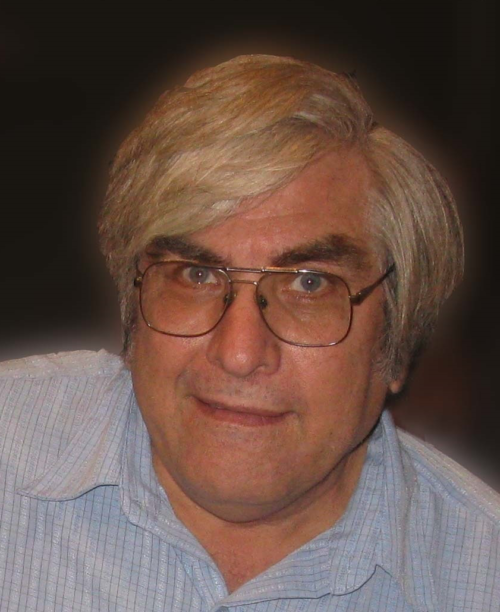
More than two years after being made aware of undisclosed conflicts of interest by a Minnesota physician who ran afoul of the U.S. FDA for health claims about supplements sold by his company, a publisher has added expressions of concern on 20 of the doctor’s papers.
As we reported in August 2019, on Feb. 23, 2018, Stephen Barrett — a U.S. physician and founder of Quackwatch — sent Dove Press a message about the 20 papers by Marty Hinz:
I believe you have published 20 articles in 6 of your journals in which the lead author did not make a full conflict-of-interest disclosure. Please email me directly with the name and email address of an individual to whom I should report.
Barrett later added other allegations, and in August of last year Dove told us that
this is an extremely complex issue involving multiple papers, considerable history and involving more than conflicts of interest.
Last week, Dove Press — part of Taylor & Francis — added expressions of concern to the 20 papers:
- Both stimulatory and inhibitory effects of dietary 5-hydroxytryptophan and tyrosine are found on urinary excretion of serotonin and dopamine in a large human population
- Neurotransmitter testing of the urine: a comprehensive analysis
- The dual-gate lumen model of renal monoamine transport
- A pilot study differentiating recurrent major depression from bipolar disorder cycling on the depressive pole
- Amino acid-responsive Crohn’s disease: a case study
- Treatment of attention deficit hyperactivity disorder with monamine amino acid precursors and organic cation transporter assay interpretation
- Amino acid management of Parkinson’s disease: a case study
- Urinary neurotransmitter testing: considerations of spot baseline norepinephrine and epinephrine
- Validity of urinary monoamine assay sales under the “spot baseline urinary neurotransmitter testing marketing model.”
- APRESS: apical regulatory super system, serotonin and dopamine interaction
- Monoamine depletion by reuptake inhibitors
- The discrediting of the monoamine hypothesis
- Relative nutritional deficiencies associated with centrally acting monoamines
- 5-HTP efficacy and contraindications
- Administration of supplemental L-tyrosine with phenelzine: a clinical literature review
- Management of L-dopa overdose in the competitive inhibition state
- The Parkinson’s disease death rate: carbidopa and vitamin B6
- Parkinson’s disease: carbidopa, nausea, and dyskinesia
- Parkinson’s disease-associated melanin steal
- Parkinson’s disease managing reversible neurodegeneration
All told, the papers have been cited nearly 200 times, according to Clarivate Analytics’ Web of Science.
We asked Taylor & Francis why — given that expressions of concern are supposed to be placeholders during investigations — placing the notices took more than two years from the time that Barrett notified Dove of the potential issues. We also wanted to know what remains to be investigated, and how much longer the publisher thought it would take. A spokesperson responded:
The investigation began with seven papers but has widened to 20, as new information came to light. It now includes all papers authored by Marty Hinz and published by Dove Press.
The original complaint focused on conflict of interest accuracy but as the investigation has progressed it has widened to include scientific validity. Because of this it has been necessary to seek independent, academic assessment for each of the 20 papers. This is a process that began in December 2018.
As [I] am sure you can appreciate, selecting suitable assessors has taken considerable time but, in light of the reports we have received to date, we believe it is now warranted to place Expressions of Concern on all papers while the investigation continues, which is the step we have taken today. We are aiming to reach a conclusion across all 20 papers as quickly as possible but cannot, at this stage, give a firm date on when this will be completed.
We pointed out that their answer didn’t explain why Dove didn’t just post an expression of concern on these papers about the undisclosed conflicts of interest once those were clear.
Sabina Alam, the publisher’s director of publishing ethics and integrity, responded:
Our preference is to publish updates to the scholarly record once an investigation has reached its conclusion, to ensure clarity and accuracy for anyone reading, using and citing that work. In this case, as the investigation progressed, it widened to include more papers and concerns around scientific validity, alongside the original complaint on conflict of interest accuracy. Exploring all these issues, which included discussions with various people across different time zones, has led to a lengthier investigation process than we had initially anticipated. Working with the academic Editors-in-Chief, we have agreed that Expressions of Concern are necessary now though, while this investigation continues to gather and assess information from the multiple parties involved.”
Hinz has not responded to our request for comment.
Like Retraction Watch? You can make a tax-deductible contribution to support our work, follow us on Twitter, like us on Facebook, add us to your RSS reader, or subscribe to our daily digest. If you find a retraction that’s not in our database, you can let us know here. For comments or feedback, email us at [email protected].
Good grief. If a publisher really wanted “to ensure clarity and accuracy for anyone reading, using and citing that work,” they would slap an EoC on a paper as soon as an investigation *started* and remove it at the conclusion of the investigation.
The 20 papers are being used to promote the sale of dietary supplement products. Among other things, the principal author failed to disclose that his daughter operates the company and his wife is a shareholder. In March 2020, the Minnesota Board of Medicine issued a disciplinary order which mentioned that he also had a royalty arrangement with the company. The full story is at https://quackwatch.org/11ind/hinz/